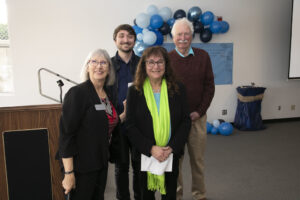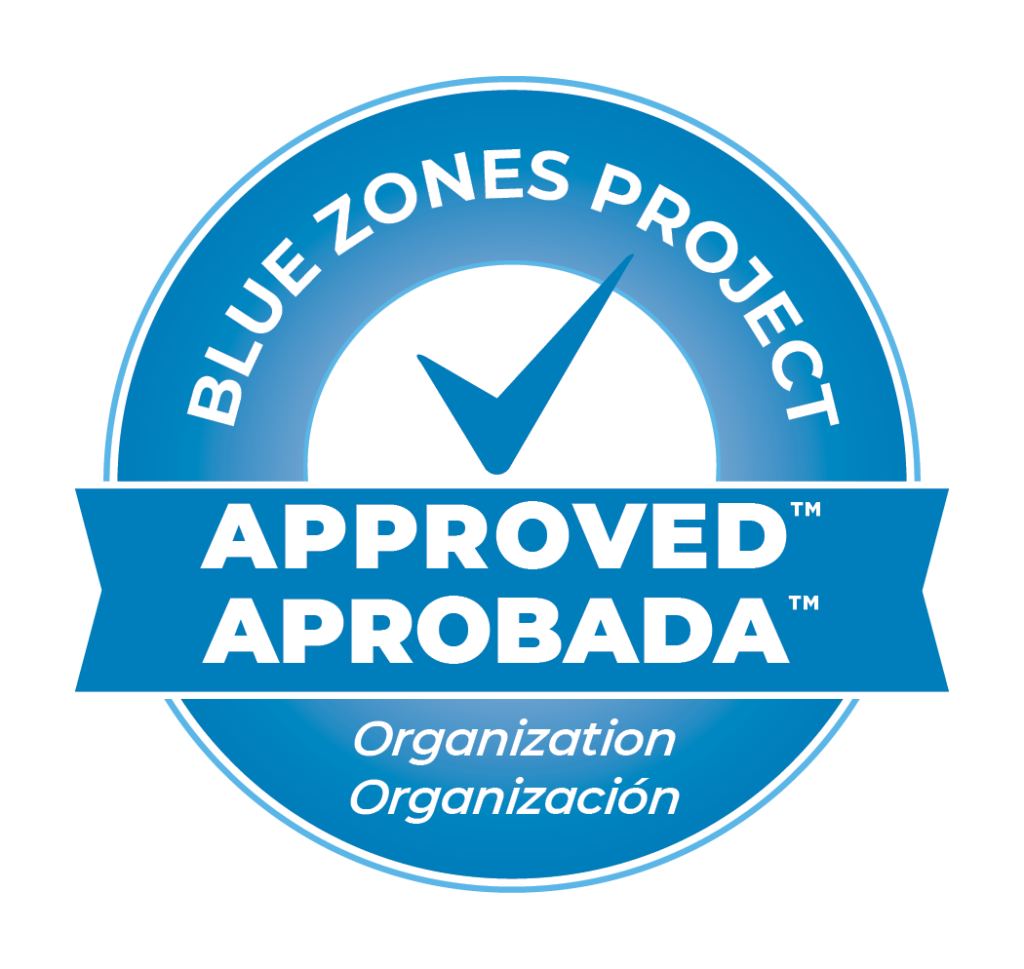
After 44 years at Interim, I am retiring. There is no perfect time to retire, but I’ve chosen to leave my job as the Executive Director in order to bring in new leadership. I wanted to retire at a time where I am still healthy and can spend considerable time and effort to train a new leader. The Board has selected a new ED, Rhiyan Quiton, and I’m confident that he has the vision, motivation, and strong ethics required to lead the agency. I know that Interim has a strong board, as well as experienced and dedicated staff to support the transition. Although I am now retired, I will provide consultation to Interim as well as other non-profits. You will likely see me at Interim openings and volunteering at holiday dinners at OMNI. As I’m still passionate about the issues of behavioral health services, housing, and homelessness, I’ll continue to be involved in advocacy at both the local and state level.
I’ve learned many lessons in the past 44 years, and have seen incredible change in the agency and the community mental health system.
I wanted to share a few of these lessons.
Seek advice from people with “lived experience” of mental illness: If we don’t listen to what mental health consumers want and need, they won’t use the services. Even if people are homeless, they will not live in housing where they don’t feel safe and comfortable. Interim has actively sought input on housing design and location from our clients. In addition, about 20% of our workforce are people who have personal lived experience with mental illness. Their experience and knowledge provide valuable input to help Interim to develop services and housing to help others to move from homelessness into housing and to wellness and recovery.
Collaborate and partner with others to achieve the best outcomes for the community and our clients: Interim can’t do it all, but there are other ways to achieve our mission. In recent years, we have collaborated with other organizations to obtain housing for people with mental illness by working with a housing developer who was willing to set aside units for people with mental illness in exchange for Interim’s willingness and ability to provide intensive support services to keep people housed. We collaborate with many local organizations. As a member of the Coalition of Homeless Services Providers, a collaborative that works to address homelessness in the community, Interim accesses the collective resources of its member agencies while offering to share ours.
Don’t reinvent the wheel. Whenever possible, copy or learn from other successful programs and practices. Beg, borrow or buy the tools, models and answers you need: In my 40 years, I have done many projects for which I had no training. I opened and operated the Sunflour Cookie Company, the agency’s first business where we trained mental health clients in work skills. I also oversaw the development of approximately 20 affordable housing projects and treatment program facilities. I learned to raise money and to read financial statements. I was not trained to do any of these things by getting my Master’s in Social Work. I found volunteers, board members, and community members who were willing to their share time and expertise. I learned from their experience.
Be a partner with your funders. Whenever possible, handle your differences in private, and your agreements in public: I realized early on, that although I didn’t always agree with our primary funder, the Monterey County Mental Health Department (now Monterey County Behavioral Health), I knew that we had the same goal – improving the lives of people with mental illness by helping them move towards wellness and recovery. We both want to provide the best care in the least restrictive, and most cost-effective manner. We don’t always agree on how to get there, but it is better to pursue a path together.
Stick to your mission, but keep analyzing community needs and evolve to meet them: Interim is frequently asked to do things outside its mission. In recent years we have developed different types of programs and services. We try to analyze each request and opportunity to see if the agency has the expertise to develop a program. If not, we ask ourselves how we can obtain it. We try to determine, can Interim do this well? Can someone else do it better? Does it contribute to the community? Sometimes we stretch to do things that are not quite within our usual area of expertise. Currently Interim only provides services for people in the public mental health system. We only serve people who are very low-income and who have Medi-Cal or no insurance. But what about people who have commercial insurance? There are no comparable services offered in Monterey County to people with private insurance. How do those people access crisis residential services, day treatment or dual recovery services when they are in need? Currently they must go out of county, assuming services are even available. Soon, Interim will be able to provide these critical services to a wider group of people in need by expanding to accept commercial insurance.
Keep perspective on what is important: Things go wrong at Interim every day. Although we work hard to prevent problems, every year we have floods from broken pipes, sewer back-ups, termites and about every type of infestation of bugs you can imagine. We have spent three years dealing with the COVID pandemic. When someone calls to tell me, “I have some bad news,” my first response is always, “Is anyone dead or injured?” In my view, everything else can be fixed. We have a great staff and board at Interim. Although they try to predict and prevent disasters, when they do happen, we spring into action, taking care of the clients, the buildings, and the employees, all of whom may be impacted. From our maintenance and administrative staff to our counselors, managers and board, everyone knows what to do when something does go wrong. We stayed open and offered mostly in-person services during the last three years of the pandemic. We emphasized immunizations, safety protocols, and testing, but we never lost sight of our clients’ need for human interaction.
Share the work and share the glory: The growth and success of Interim has taken the involvement and dedication of a large community of committed staff, board, volunteers, and mental health consumers, as well as the faith and commitment of our funders and donors. Give credit where credit is due. Say thank you, frequently, to the staff, the donors, the board, the clients, the funders, and the community.
Don’t be afraid to ask: I frequently embarrass my husband and children by asking friends, relatives, my dentists, and total strangers to support Interim with money, donated goods, or volunteering their time, skills and expertise. I ask people to bake, send money, give toothbrushes, sponsor events, act as the holiday elf, and provide free consultation. I do this because I have seen firsthand how Interim can impact the lives of our clients as well as the community. I feel fortunate that I have been able to work here for 44 years. I have gained as much as I have given. Interim has given my life purpose and direction. In the future, when the new Executive Director, Rhiyan Quiton, calls you and asks you for help, for advice, funds or volunteer work, please say yes!
To all of you who have joined with me, thank you for supporting Interim! You have been a big part of our success. Through our work together, you have inspired and strengthened my resolve to improve mental health resources for our clients and our community for the past 44 years.




